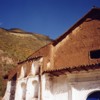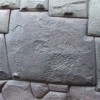Department of Foreign Languages and Literatures
 |
 |
 |
 |
 |
 |
 |
| Biography |
| Education |
| Research |
| Dissertation |
| Publications |
| Courses |
| Curriculum Vitae |
Biography

Education
Marilyn Manley received her Doctorate from the Department
of Hispanic Languages and Literatures at the University
of Pittsburgh in Pennsylvania in April 2004 with a major field concentration
in Hispanic Linguistics and a minor field concentration in Methodology
and Applied Linguistics. Also in April 2004, she obtained a Graduate Certificate
in Latin American Studies from the Center
for Latin American Studies at the University of Pittsburgh.
In August 2001, she received a Certificate in Advanced Quechua Language Study from the Centro de Estudios Regionales Andinos "Bartolomé de Las Casas", Cuzco, Peru. Earlier the same year, in April
2001, she received her Master’s in Hispanic Linguistics from the University of Pittsburgh.
She completed her undergraduate work at Boston University in
Massachusetts in May 1999. At Boston University, she completed two majors, Linguistics and Hispanic Languages and Literatures.
During her undergraduate career, in 1998, she earned credit towards her Bachelor’s degree abroad while studying at the Instituto Internacional in Madrid, Spain.
[Back to top]
Research
She has presented papers at national and international
conferences on a variety of theoretical and applied linguistics topics
such as Quechua/Spanish language attitudes, Quechua identity maintenance,
cross-linguistic influence of the Cuzco Quechua epistemic system on Andean
Spanish, Cuzco Quechua epistemic markers in discourse, Less Commonly Taught
Languages (LCTL) pedagogy, the implementation of technology in foreign
language instruction, back-channel behavior, code-switching, and Quechua
Language internet resources (click here
to see her work-in-progress, a "Quechua Language Instructional Website").
She also regularly participates in professional workshops dedicated to the discussion of teaching methods. The majority of
these workshops have been offered by Rowan University’s Faculty
Center for Excellence in Teaching and Learning. Some of the topics of these workshops have included foreign language placement
testing, variation in students’ learning styles, student evaluations of teaching, commenting on students’ writing, classroom assessment
techniques, and creating community in the classroom.
[Back to top]
Dissertation
In April 2004, she completed her dissertation at the
University of Pittsburgh, titled "Quechua
to Spanish Cross-Linguistic Influence among Cuzco Quechua-Spanish Bilinguals:
The Case of Epistemology". Within her dissertation, she responds to
three related research goals. In order to investigate these goals, she
gathered data from 169 members of two Cuzco, Peru non-profit governmental
agencies, the Asociación Civil ‘Gregorio Condori Mamani’ Proyecto Casa
del Cargador , ‘Gregorio Condori Mamani’ Civil Association House of the
Carrier Project’ (click here
to see her website created for the Association, a work-in-progress) and
El Centro de Apoyo Integral a la Trabajadora del
Hogar, ‘Center for the Integral Support of Female Home Workers’. The
majority of her participants speaks Quechua natively and acquired Spanish
as a second language during childhood or adolescence. She collected data
from these two populations through the means of ethnography, demographic
questionnaires, a social network analysis, a language attitudes study,
elicitation of short narratives, role play interviews and a subjective
reaction test. In response to her first research goal, she examines the
nature of the semantics and pragmatics of the Cuzco Quechua epistemic
system, including the epistemic suffixes, -mi/-n and -si/-s, and the Quechua
verb past tenses, -rqa- and -sqa-. She finds the Quechua epistemics to
encode meaning beyond information source and level of certainty and to
be affected by a variety of discourse factors. In her treatment of her
second research goal, she finds 31 different phonetic, morphosyntactic,
and calque Quechua to Spanish cross-linguistic influence features to occur
in her participants’speech. She also examines the specific case of the
cross-linguistic influence of the Quechua epistemic system on the Spanish
spoken by her participants. The presence of cross-linguistic influence
in her participants’ speech supports a model of child Second Language
Acquisition in which the first language plays a significant role in the
acquisition of the second language. Finally, in response to her third
research goal, she finds various demographic characteristics, social network
characteristics, and the language attitudes of her participants to correlate
with their production of the 31 Quechua to Spanish phonetic, morphosyntactic,
and calque cross-linguistic features. While presenting her results for
her third research goal, she suggests that her participants may purposefully
use various Quechua cross-linguistic features in order to identify themselves
as Quechua speakers and distinguish themselves from native Spanish speakers,
thereby creating an in-group variety of Spanish.
[Back to top]
Publications
"Quechua Language Attitudes and Maintenance in Cuzco, Peru", Language Policy, 7 (4), December 2008, pp. 323-324, Springer, Netherlands.
"Survival Strategies: LCTL's in Context", Journal of the National Council of Less Commonly Taught Languages, v.5, Spring 2008, pp. 13-32, National Council of Less Commonly Taught Languages, Madison, WI.
“Cross-linguistic Influence of the Cuzco Quechua Epistemic System on Andean Spanish”, in Spanish in contact: Policy, Social, and Linguistic Inquiries, eds. Kim Potowski and Richard Cameron, pp. 191-209, John Benjamins Publishing Company, Philadelphia, PA, 2007.
"Adaptaciones fonéticas quechuas de préstamos léxicos españoles", Revista Andina, nº 37 segundo semestre, ed. Jean-Jacques Decoster, 237-247, Centro "Bartolomé de Las Casas", Cuzco, Peru, 2003.
"Effects of Native Language and Sex on Back-Channel Behavior", in Selected
Proceedings of the First Workshop on Spanish Sociolinguistics, ed.
Lotfi Sayahi, 96-106, Somerville, MA: Cascadilla Proceedings Project,
2003.
[Back to top]
Courses
List of classes taught from Fall 2004 through Spring 2009:
Spanish I (SPAN 05.101)
Spanish II (SPAN 05.102)
Spanish III (SPAN 05.201)
Spanish Reading and Conversation (SPAN 05.211)
Oral Spanish (SPAN 05.305)
Spanish Reading and Composition (SPAN 05.212)
Linguistics and Cultures of Native South America (HONR 05.390)
Introduction to Spanish Translation (SPAN 05.340)
Introduction to Hispanic Linguistics (SPAN 05.302)
Introduction to Anthropological Linguistics (cross-listed SPAN 05.250
& ANTH 02.250)
Modern Descendants of the Incas: Quechua Language, Culture and History
(HONR 05.390)
[Back to top]
Curriculum Vitae
forthcoming
[Back to top]
Rowan University, Department of Foreign Languages and Literatures
312 Bunce Hall, 201 Mullica Hill Road, Glassboro, New Jersey 08028 USA
Phone: (856)256-4500 ext.3466
E-mail: manley@rowan.edu